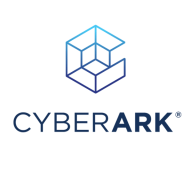

CyberArk Certificate Manager and Fortinet FortiToken compete in the security solutions category. Based on the comparison, CyberArk Certificate Manager takes the upper hand in certificate lifecycle automation and integration capabilities, whereas Fortinet FortiToken excels in cost-effective two-factor authentication deployment.
Features: CyberArk Certificate Manager offers key features like extensive automation for renewing and deploying certificates, platform-agnostic integration for diverse environments, and comprehensive certificate lifecycle management. Fortinet FortiToken provides powerful security with its two-factor authentication, an intuitive interface for ease of use, and seamless integration with FortiAuthenticator, which enhances multi-device compatibility.
Room for Improvement: CyberArk Certificate Manager could improve by expanding its hardware security module compatibility and address concerns related to support for on-prem solutions post-acquisition. It also needs enhanced out-of-the-box integrations. Fortinet FortiToken might increase flexibility with device transfers without extra licenses, expand mobile compatibility, and refine the user interface and notification systems on mobile devices.
Ease of Deployment and Customer Service: Both products provide flexible deployment options, including on-premises and hybrid environments. CyberArk is appreciated for its professional support and quick resolution, although some report a decrease in responsiveness recently. Fortinet FortiToken is praised for its straightforward deployment and reliable product stability, but user reviews highlight a need for more extensive support.
Pricing and ROI: CyberArk Certificate Manager, though higher in cost, offers significant ROI through operational efficiency and risk reduction due to its automation features. Despite increasing costs, it continues to deliver value through reduced resource requirements. Fortinet FortiToken is appealing for its low ownership cost, offering a budget-friendly option without compromising on security, which proves ideal for price-sensitive markets.
CyberArk Certificate Manager is doing its best with multiple layers of security.
With Venafi, it wasn't about saving time but achieving functionality that was otherwise impossible, such as distributing certificates without manual intervention.
Inquiries are typically addressed the same day, with most issues, even complex ones, resolved within 24 hours.
Venafi's technical support is excellent, with even their first-tier support being in-house and highly competent.
Their technical support is knowledgeable and helpful, making Venafi stand out among other CyberArk products.
Their resolution time is timely, and they provide solutions efficiently.
I am satisfied with their service.
This role-based access control enhances scalability and efficiency by providing a focused view of necessary information.
Horizontal scaling is a necessity rather than vertical scaling.
Scalability with Venafi is good; you can definitely use it if you have ten thousand certs, a thousand certs, a million, or a couple million.
There is a need to scale more effectively to accommodate a larger number of users and bulk users.
Regarding Fortinet FortiToken's scalability, we can purchase licenses according to our needs.
I would rate scalability for Fortinet FortiToken as nine and a half or ten.
Venafi's stability has been consistently reliable.
Venafi is a stable product. It's definitely more stable than others.
I observed that in the last year, CyberArk Certificate Manager was down two to three times without any notification.
I would rate stability for Fortinet FortiToken as the best solution.
FortiToken is stable, but there are some restrictions when it comes to supporting two-factor authentication in multi-factor environments.
Expanding the range of out-of-the-box integrations would significantly improve the user experience.
The yearly DNS verification required by certificate authorities necessitates manual intervention, hindering full automation.
They are pushing for cloud adoption, but we prefer on-premises solutions due to regulatory concerns.
Any Fortinet FortiToken cannot be removed; if a box expires or loses support, it cannot be removed, and customers must purchase it from scratch.
This would allow for broader distribution among a larger number of system admins and software engineers, which is currently not feasible with the existing hardware-only approach.
If I can receive it on email, it would be more flexible.
Venafi offers good value for the cost.
The pricing has increased for us, impacting our organization due to its operational expenditure (OPEX).
For our budget, Venafi's cost is moderate. It's not expensive as internal certificate generation is free, and we only pay for the public CA certificate signer and for storage in Venafi.
Discounts are often provided to close deals, making it a cost-effective solution.
The pricing for FortiToken is not low; I regard it as medium-priced.
The most valuable feature of Venafi is the automation that helps save time and reduce human error.
It ensures centralized certificate management, which is crucial for compliance and maintaining best practices.
What I like best about Venafi is that it's very easy to get somebody on a call and get any of my questions answered.
The main use case of FortiToken is that it is a hardware-based solution, providing secure two-factor authentication for administrators.
Fortinet FortiToken provides very important security benefits because it is used to manage FortiGate from outside, exclusively with Fortinet FortiToken.
It is very user-friendly and easily integrates with various firewalls, making it convenient to use within diverse environments.
| Product | Market Share (%) |
|---|---|
| Fortinet FortiToken | 3.6% |
| CyberArk Certificate Manager | 1.8% |
| Other | 94.6% |


| Company Size | Count |
|---|---|
| Small Business | 6 |
| Large Enterprise | 13 |
| Company Size | Count |
|---|---|
| Small Business | 17 |
| Midsize Enterprise | 5 |
| Large Enterprise | 9 |
CyberArk Certificate Manager automates and streamlines certificate processes, reducing errors and enhancing efficiency. It centralizes management, supports compliance, and improves certificate lifecycle management with customizable features.
CyberArk Certificate Manager offers a streamlined approach to managing certificates, focusing on automation that minimizes manual intervention and errors. Its discovery and centralized management enhance operational efficiency, while integration capabilities facilitate seamless handling of certificates across systems like AWS and Azure. Users benefit from its user-friendly, intuitive interface, robust reporting, and customizable notifications, which improve compliance, reduce bottlenecks, and allow for custom field creation. Though the on-premises version is mature, there is room for improvement in cloud service integration and out-of-the-box features. Additional enhancements are needed in documentation clarity, hardware security module support, and diverse scripting language support.
What are the most important features of CyberArk Certificate Manager?CyberArk Certificate Manager finds applications across multiple industries like finance and healthcare where stringent security protocols are critical. Organizations use it for server authentication and managing application IDs, ensuring compliance and preventing outages. Its integration with major cloud platforms and automation of installations across endpoints makes it an ideal choice for companies focusing on enhancing security and operational efficiency.
As we've seen, passwords alone don't keep unwanted guests out of your network. Password-only authentication has led to security breaches, malware infections, and policy violations. With two-factor authentication, a password is used along with a security token and authentication server to provide far better security. Authorized employees can remotely access company resources safely using a variety of devices, ranging from lpatops to mobile phones.
We monitor all Authentication Systems reviews to prevent fraudulent reviews and keep review quality high. We do not post reviews by company employees or direct competitors. We validate each review for authenticity via cross-reference with LinkedIn, and personal follow-up with the reviewer when necessary.